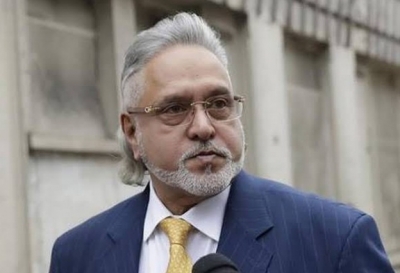
New Delhi, March 3 (IANS) The Supreme Court Friday dismissed a plea by businessman Vijay Mallya, facing extradition, against proceedings in a Mumbai court to declare him a fugitive economic offender and confiscate his properties.
Counsel, representing Mallya, contended before the court that he was not receiving any instructions from him in the matter.
A bench of Justices Abhay S. Oka and Rajesh Bindal said counsel for the petitioner states that Mallya is not giving any instructions. “In view of this statement, the petition is dismissed for non-prosecution,” said the bench.
In December 2018, the apex court had issued notice to the Enforcement Directorate (ED) on Mallya’s plea but declined to stay the proceedings before a special Prevention of Money Laundering Act (PMLA) court at Mumbai, where the probe agency sought a ‘fugitive’ tag for him under the Fugitive Economic Offenders’ Act, 2018.
The prosecuting agency has the powers to confiscate his property, once a person is declared a fugitive economic offender under the provisions of the Act.
Mallya was declared a fugitive under the Act in January 2019, by a Mumbai special court.
On November 3 last year, in another matter, Mallya’s counsel had told the apex court he has been incommunicado for a long time and requested the court to discharge him from representing Mallya in the matter. The apex court was considering a plea filed by Mallya in relation to a monetary dispute with the State Bank of India.
The top court had then asked the lawyer to provide Mallya’s email and residential address in the UK to the court registry. Counsel submitted that he wants to be discharged from the case since he is not receiving any instructions from Mallya. The top court permitted the lawyer to initiate the procedure for withdrawing his legal representation for the fugitive.
In July last year, the Supreme Court sentenced Mallya to four months’ imprisonment for contempt of court in 2017, as he suppressed information from the court. The top court also ordered Mallya to deposit $40 million — which he had transferred to his family members in violation of the court orders – failing which attachment of his properties will begin.










